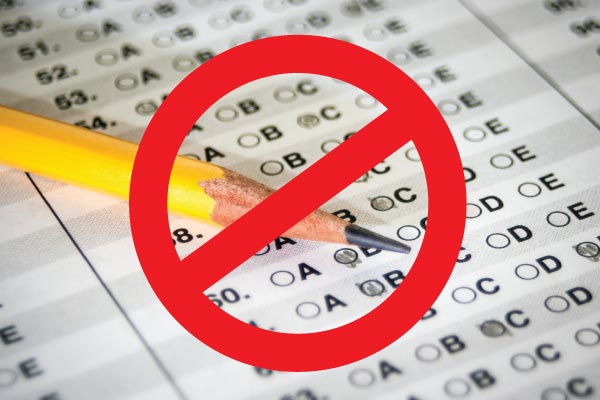The Impact of Going Test Optional

http://images.collegexpress.com/article/test-prep-how-test-optional-schools-are-changing-college-admission.jpg
Traditionally, standardized testing has been a hallmark of the college application process, with the SAT being administered since 1926 and the ACT being administered since 1959. Every few months, students pack into classrooms nationwide and prepare to take that month’s version of the three and a half hour or longer test. Recently, both exams have come under scrutiny regarding the effectiveness and accuracy of the test in determining college readiness. Many colleges have become test optional for admission, where they don’t require applicants to submit test scores as part of their application. Public colleges should become test optional because the available standardized tests do not and cannot accurately judge a test taker’s ability or achievement due to outside factors that give certain people an edge over others.
Standardized tests like the SAT or ACT do not create an even playing field as they would like to. First of all, money plays a huge role in testing. When the tests cost upwards of $50, those with less money are automatically disadvantaged. Some people can afford to take the test as many times as necessary in order to achieve the desired score, while some can take the test only once. Luckily, this can be avoided with fee waivers, however they aren’t guaranteed. Money also plays a role in the preparation process. Some people can afford to spend hundreds of dollars on prep classes, private tutoring, and practice exams, and they have an advantage over the people who spend $20 for a review book, and they have an advantage over people who don’t prepare at all. While it is understandable that people who prepare more deserve a higher score, when the preparation is directly based on money, it isn’t fair at all. Apart from money, some students just aren’t good test takers. Taking a 4-hour test isn’t an easy task, and when dealing with anxiety or stress, it isn’t any easier. Some students simply can’t answer 75 questions in 40 minutes and actually do well. Furthermore, some students just have bad days. We’ve all had the day we didn’t want to go to school because we were tired and how so much on our mind, so why should we force students in that state of mind to take long standardized test and actually make that test matter towards their future. State colleges shouldn’t be promoting tests that value certain people more than others and don’t depict college readiness as they claim to.
Going test optional should be done by all colleges, but specifically by public colleges because they shouldn’t be condoning the monopoly that The College Board has on standardized testing nationwide. If each student takes 2 SATs and 2 SAT Subject Tests, it costs $161, before factoring in costs for score reporting. Despite being a private, nonprofit company, The College Board makes a revenue near 600 million dollars, with a profit of about 50 million. This money is supposed to go towards scholarships and financial aid, but it isn’t always clear where it goes. Public colleges and the government as a whole should not be promoting this kind of predation on students. Many colleges are already taking action and going test optional, such as George Washington University, Bates College, Brandeis University, Wesleyan University, and Wake Forest University. Since public colleges are often trying to appear as good as and better than private universities, going test optional may be a way reduce the gap between the two.
Public colleges should go test optional because the current options for standardized tests, the SAT and the ACT, are not accurate predictors of success in college because tests scores are often based on income and anxiety, when they should be based on pure achievement. These tests should not be promoted by any college, let alone public colleges since they are taxpayer funded. Going test optional wouldn’t have many disadvantages, as colleges still look at transcripts and other grades, jobs, volunteer work, GPA, letters of recommendation, and essays, so removing one requirement would not impact the process and would result in a happier graduating class.






